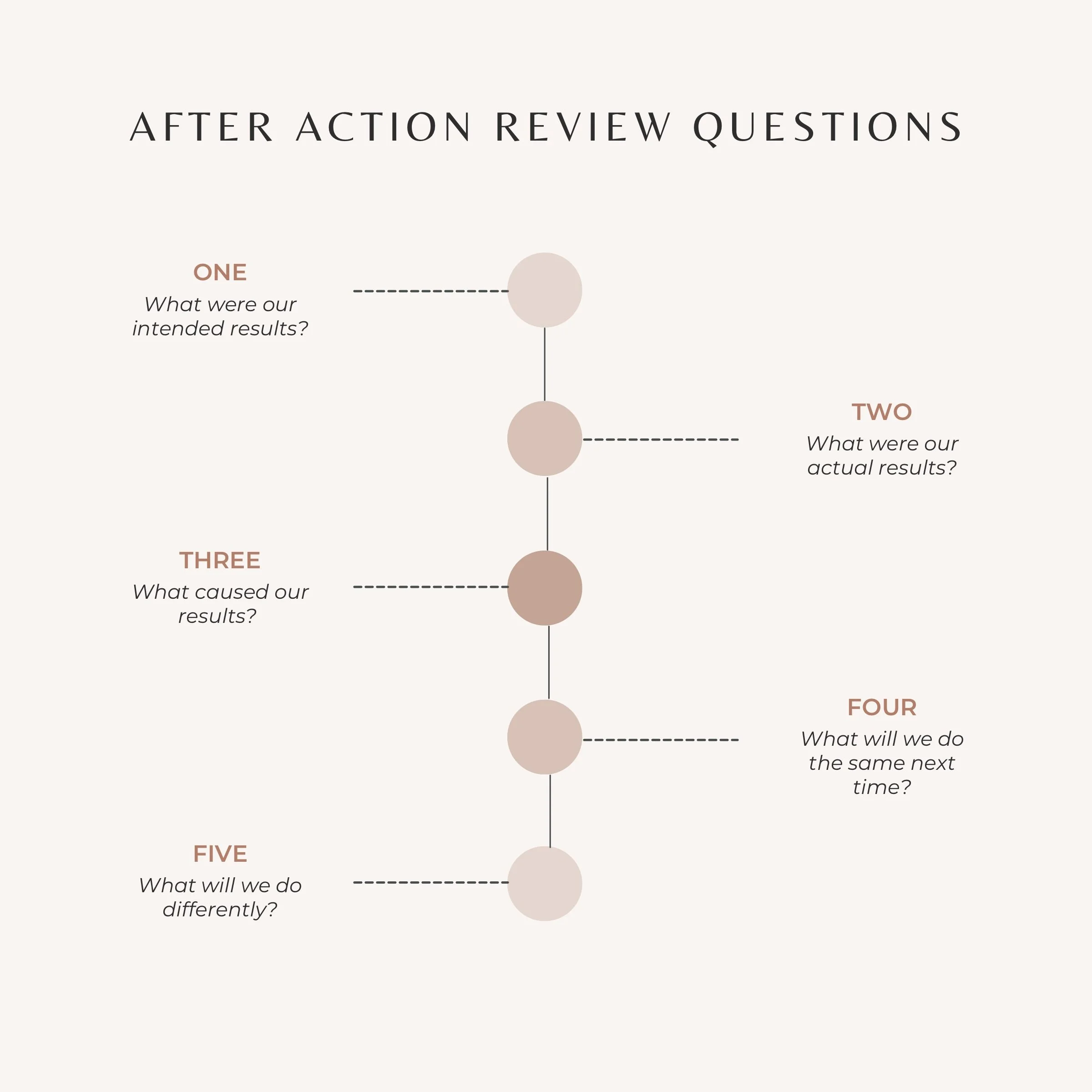How the Navy Seals After-Action-Review (AAR) Can Improve Your Team's Performance
Have you heard of the Navy Seals After-Action-Review (AAR)? It's a powerful tool that can help your team analyze its performance, learn from its mistakes, and improve its processes. In this post, we'll show you how to implement an AAR and discuss its benefits.
What is an AAR?
An AAR is a meeting that occurs after a mission or action is taken. The team members name and analyze problems, facing uncomfortable questions. It allows for people to ‘own’ their stuff and to understand how individuals in the group think so that the group has more awareness of others’ thought processes.
Benefits of an AAR
In teams with a high level of safety, these meetings are uncomfortable (but safe) and are essential to improving and creating a great culture with vulnerability! Here are some of the questions:
What were our intended results?
What were our actual results?
What caused our results?
What will we do the same next time?
What will we do differently?
By answering these questions, you can identify areas for improvement and create a roadmap for future success. Implementing an AAR can help your team:
Identify mistakes and weaknesses in its processes
Learn from past experiences and avoid making the same mistakes
Build a culture of open communication and vulnerability
Improve overall performance
Implementing an AAR
Implementing an AAR is simple. Schedule a meeting after each project milestone and ask your team to answer the five questions listed above. Encourage your team to be honest and open about their experiences. By doing so, you can identify areas for improvement and create a roadmap for future success.
In addition, keep your teams small. Research has shown that keeping teams small will increase communication, thus increasing safety and trust. More about that here.
Conclusion
Implementing an AAR can help your team improve its processes, build a culture of open communication and vulnerability, and ultimately, achieve better results. By asking the right questions and being honest about your experiences, you can learn from past mistakes and create a more successful future.
Other Reading
"After Action Review: A Simple Tool to Improve Team Performance" by Harvard Business Review: https://hbr.org/2015/10/after-action-review-a-simple-tool-to-improve-team-performance


